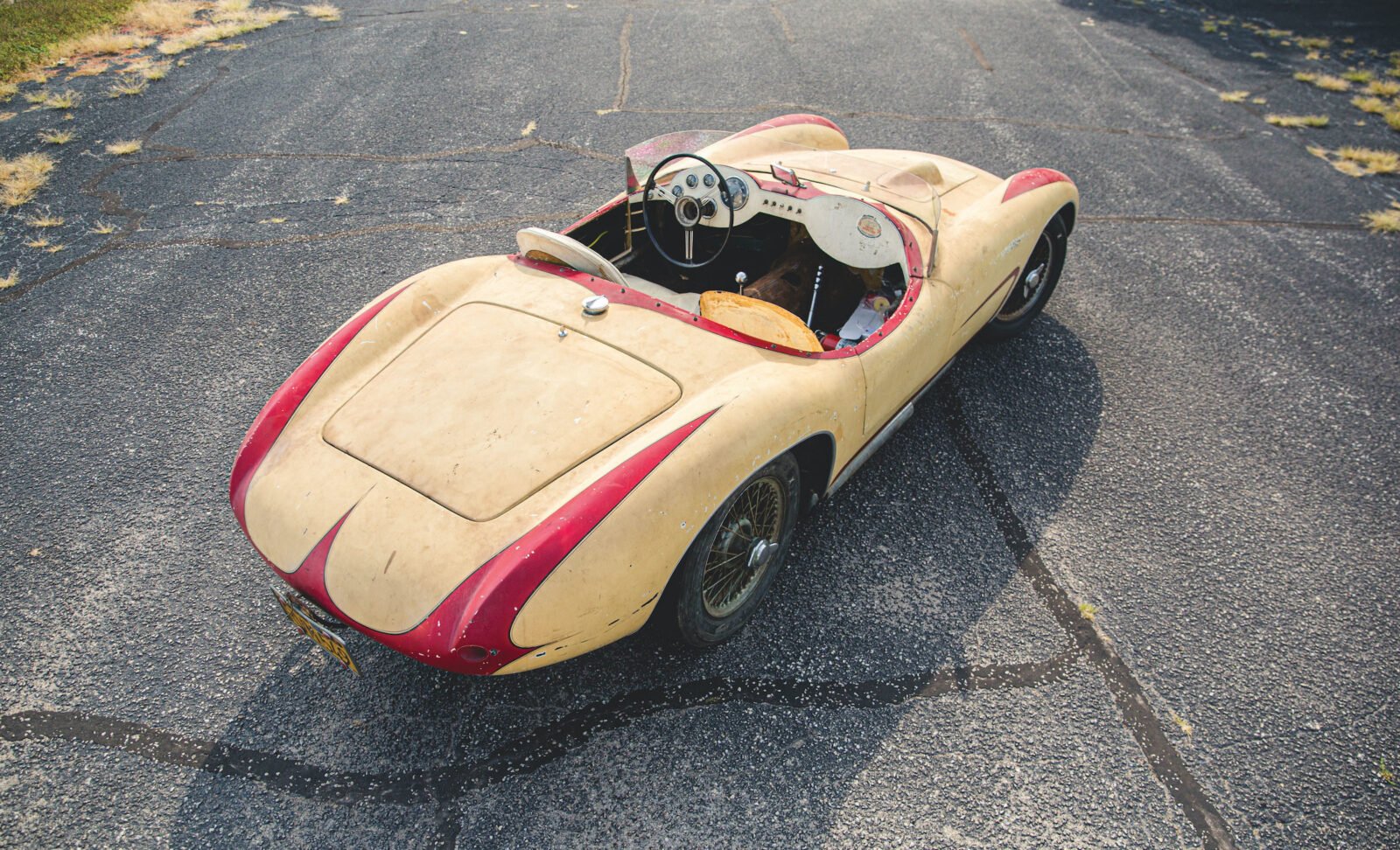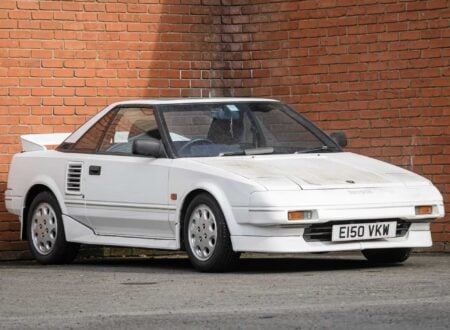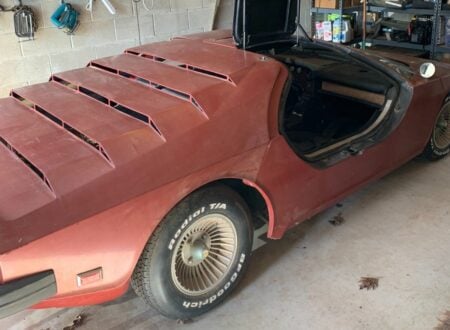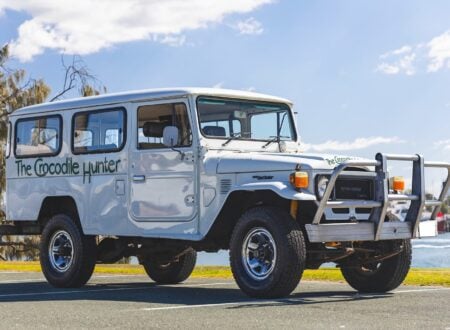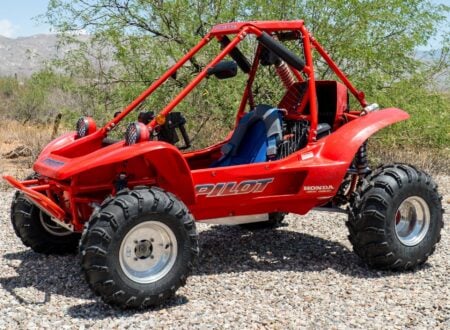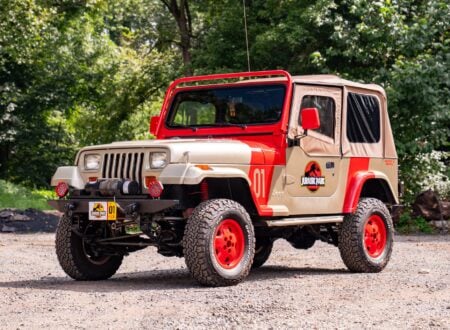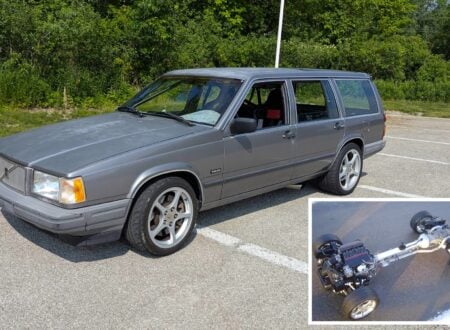Devin Enterprises was founded by Bill Devin in 1955 to build lightweight racing and sports car bodies from fibreglass – a material that was still new and even cutting edge in the 1950s. Devin’s company was a wildly successful endeavour and quickly became the world’s largest manufacturer of aftermarket fibreglass car bodies.
One of the keys to Bill Devin’s success was in his mould design. Rather than a large single mould he developed a complex system of 50 parts that could be assembled in a wide variety of ways to create bodies that were wider or narrower, longer or shorter, meaning they could be made to fit a huge variety of chassis – from small British roadsters to much larger American cars.
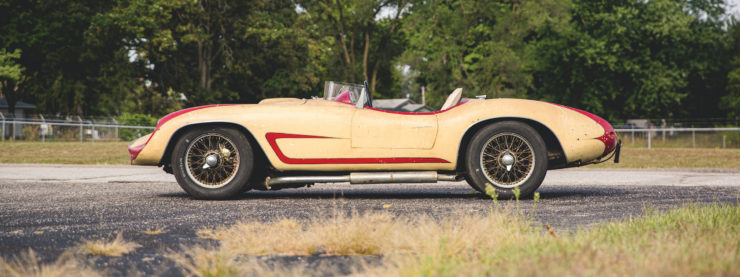
Before the availability of fibreglass it was difficult to build custom automobile bodies, they generally required either industrial grade steel stamping equipment, or a team of highly trained metal shapers to work with alloy panels. The arrival of fibreglass meant that moulds could be made or taken from pre-existing designs, and then used to make countless lightweight bodies that would never succumb to rust.
Devin Specials like the Devin Triumph you see here were built in large numbers – though exact figures are hard to come by. They became a common sight on race tracks around the United States and many made their way overseas to Europe and further afield.
The combination of low weight, good aerodynamics, and good handling from European chassis meant the Devins were often unstoppable – a sign of things to come decades in the future when lightweight composites would be used to build high-end supercars and Formula 1 cars.
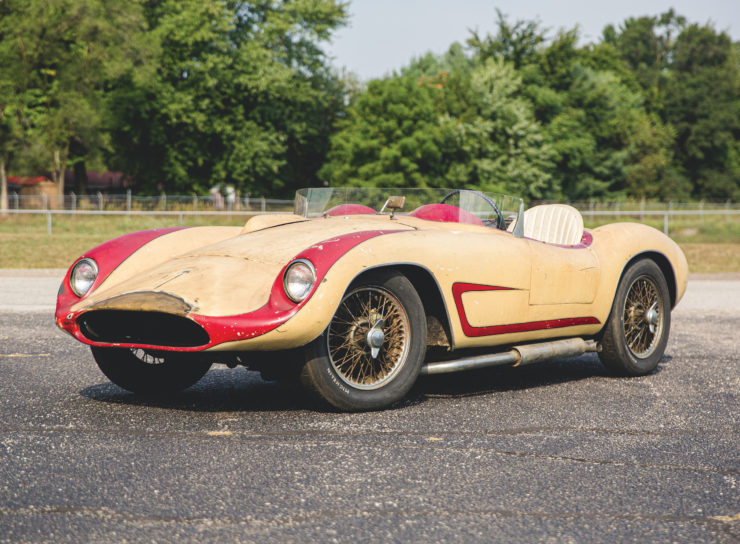
The first fibreglass Devin body is said to have been taken as a mould directly from an Ermini 375 Sport 1100 with aluminum bodywork by Italian coachbuilder Scaglietti. Some changes were made to this Scaglietti body however this basic shape would form the foundation of many Devin bodies – European car designers and coachbuilders had already been “borrowing” from each other for decades by this point.
Over the years Bill Devin and his team also developed their own ladder chassis, most of the bodies they sold were for clients who wanted to fit them to pre-existing chassis but Devin Enterprises also sold a number of turnkey cars.
Today there’s a huge amount of interest in surviving original Devin cars, particularly those with some known racing history. We’ve previously featured a Devin D Porsche on Silodrome and we’ve seen a slew of other interesting Devins based on various European sports cars of the 1950s and 1960s.
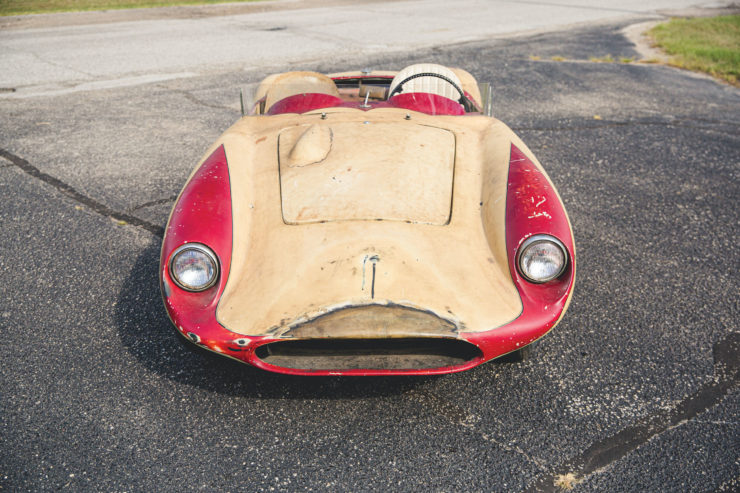
The car you see here is a Devin Triumph, it’s running a Triumph TR3 inline 4-cylinder engine fitted with dual SU carburettors and a side exhaust.
There’s an RCI fuel cell and full-size spare in the trunk and the car still carries its beautiful livery from the period, now with a healthy dose of patina. It looks like some minor nose repairs have been conducted in the past and the car also carries a 1959 Bonneville National Speed Trials safety inspection sticker
If you’d like to read more about this car or register to bid on it you can click here to visit the listing on RM Sotheby’s.
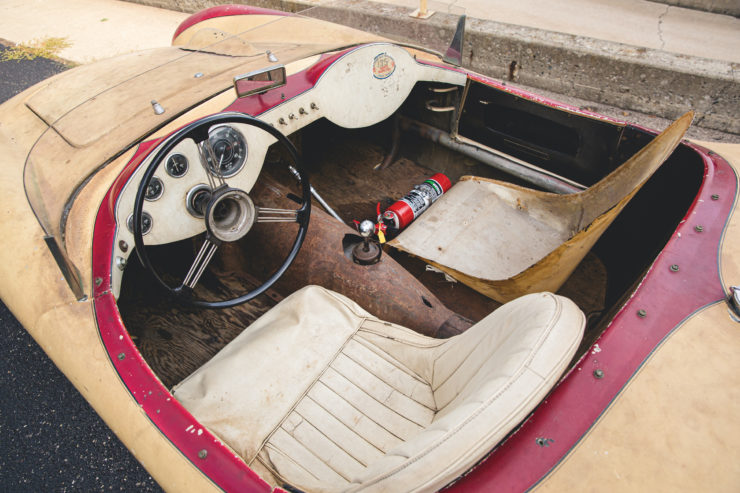
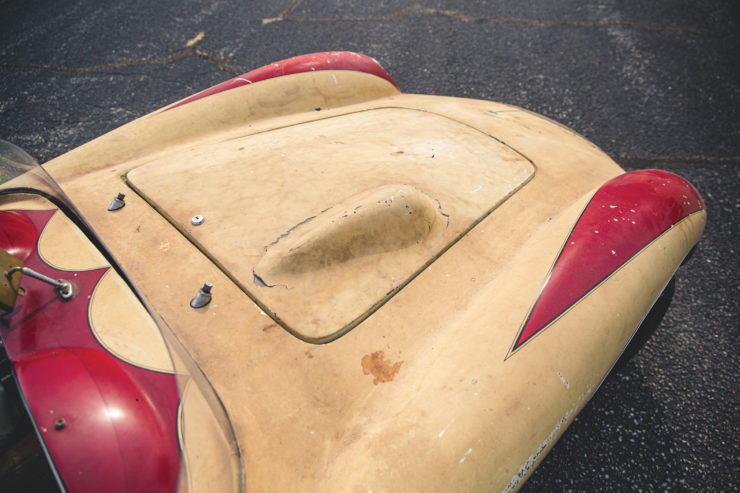
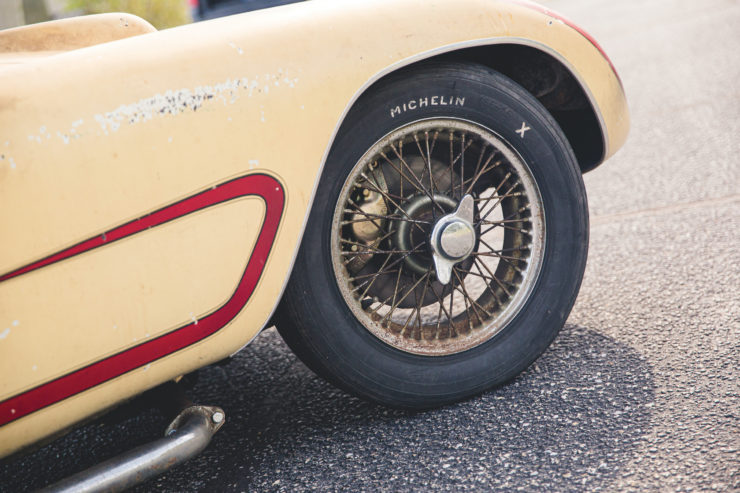
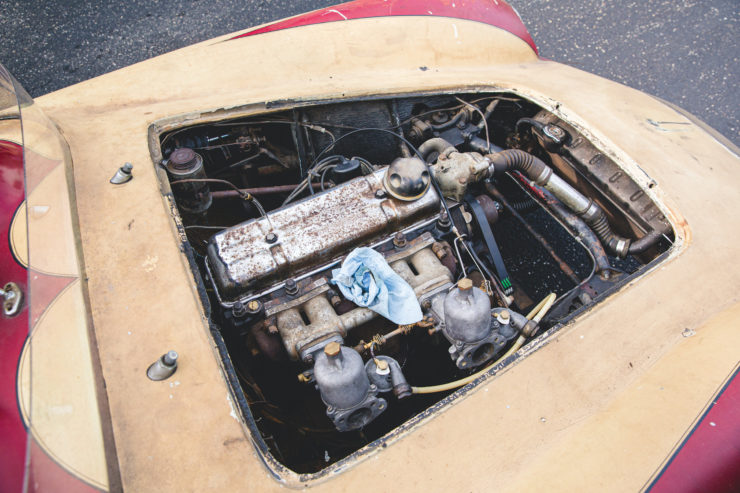
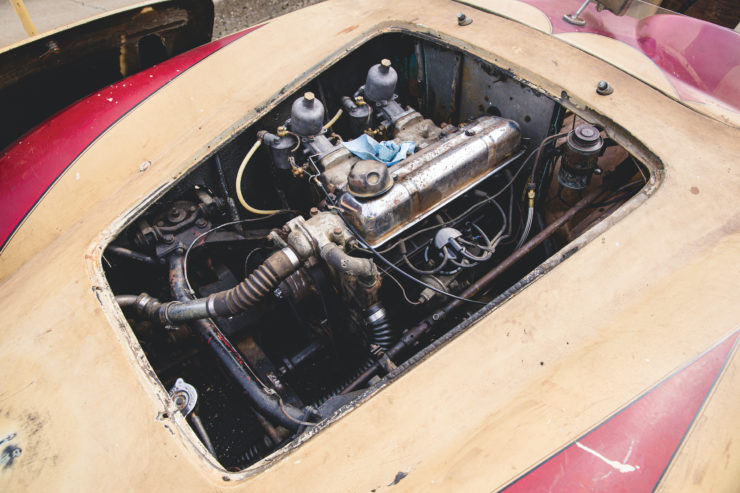
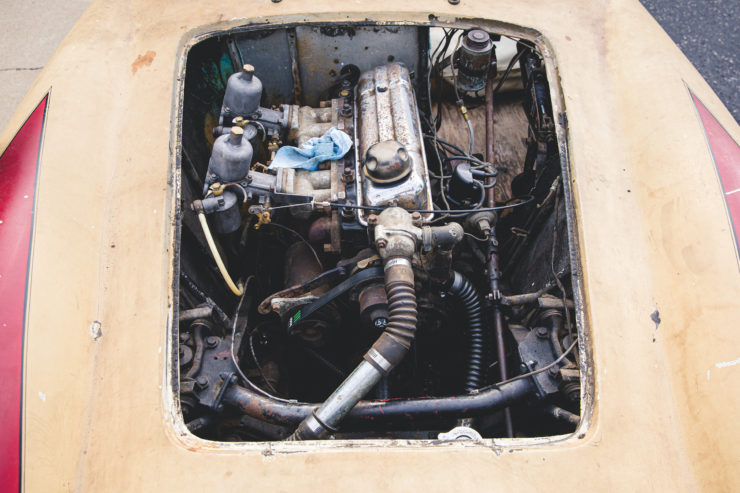
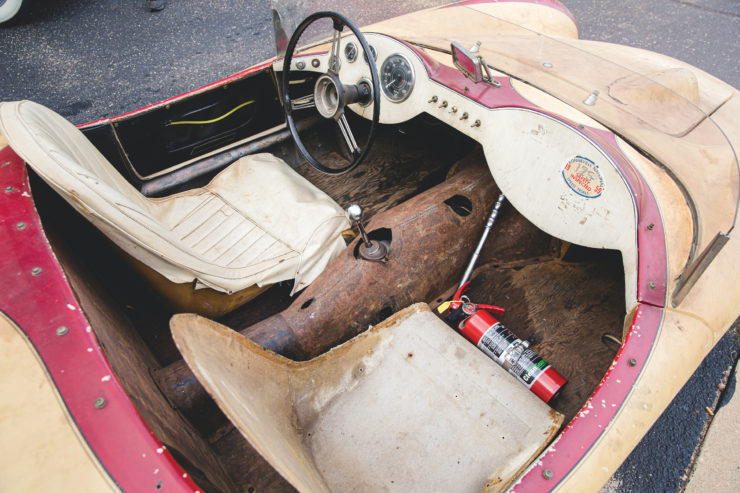
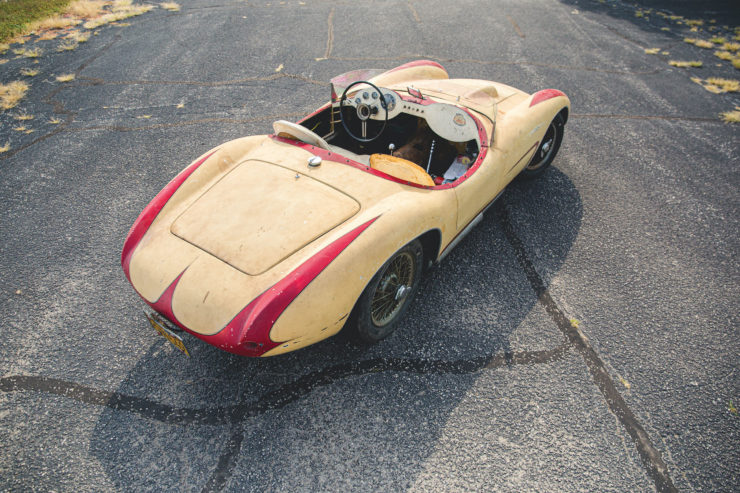
©2019 Courtesy of RM Sotheby’s

